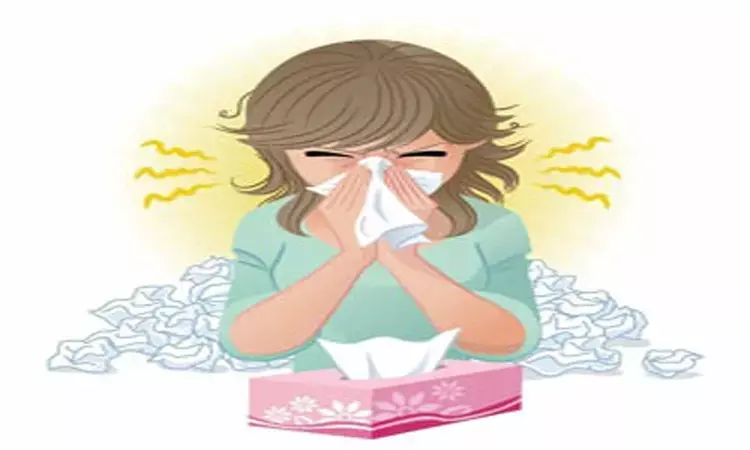- Home
- Medical news & Guidelines
- Anesthesiology
- Cardiology and CTVS
- Critical Care
- Dentistry
- Dermatology
- Diabetes and Endocrinology
- ENT
- Gastroenterology
- Medicine
- Nephrology
- Neurology
- Obstretics-Gynaecology
- Oncology
- Ophthalmology
- Orthopaedics
- Pediatrics-Neonatology
- Psychiatry
- Pulmonology
- Radiology
- Surgery
- Urology
- Laboratory Medicine
- Diet
- Nursing
- Paramedical
- Physiotherapy
- Health news
- Fact Check
- Bone Health Fact Check
- Brain Health Fact Check
- Cancer Related Fact Check
- Child Care Fact Check
- Dental and oral health fact check
- Diabetes and metabolic health fact check
- Diet and Nutrition Fact Check
- Eye and ENT Care Fact Check
- Fitness fact check
- Gut health fact check
- Heart health fact check
- Kidney health fact check
- Medical education fact check
- Men's health fact check
- Respiratory fact check
- Skin and hair care fact check
- Vaccine and Immunization fact check
- Women's health fact check
- AYUSH
- State News
- Andaman and Nicobar Islands
- Andhra Pradesh
- Arunachal Pradesh
- Assam
- Bihar
- Chandigarh
- Chattisgarh
- Dadra and Nagar Haveli
- Daman and Diu
- Delhi
- Goa
- Gujarat
- Haryana
- Himachal Pradesh
- Jammu & Kashmir
- Jharkhand
- Karnataka
- Kerala
- Ladakh
- Lakshadweep
- Madhya Pradesh
- Maharashtra
- Manipur
- Meghalaya
- Mizoram
- Nagaland
- Odisha
- Puducherry
- Punjab
- Rajasthan
- Sikkim
- Tamil Nadu
- Telangana
- Tripura
- Uttar Pradesh
- Uttrakhand
- West Bengal
- Medical Education
- Industry
Nasal biomarkers may predict severity of pollen-specific allergy

Researchers at the Institute of Environmental Medicine at Helmholtz Zentrum München and Technical University of Munich have earmarked nasal biomarkers with which they are able to predict the severity of the symptoms even before the start of the pollen season based on the expression rate of these biomarkers in people with and without allergy.
Pollens allergy may lead to symptoms such as sneezing, rhinitis, and watery eyes. The complex correlation of physiological processes leading to allergic symptoms is not fully understood.
Symptoms can be predicted in advance
A research group led by the Institute of Environmental Medicine at Helmholtz Zentrum München and Technical University of Munich (Research Association UNIKA-T), examined patients with pollen-induced allergic rhinitis and people without allergy over a period of one year. In addition to a digital symptom diary kept daily by the study participants, the researchers took samples of blood and nasal secretion. They then compared the immune variables (cytokines, chemokines and pollen-specific immunoglobulins) in these samples during and after the pollen season. As a result, they identified the endogenous messenger substances IL-8 and IL-33 as well as the antibodies sIgG4 and sIgE as biomarkers (= measurable characteristics with relevance for biological processes). These biomarkers show a significant correlation with pollen-specific nasal symptoms (proven by Spearman's rank correlation coefficient). The researchers were now able to predict the severity of the symptoms even before the start of the pollen season based on the expression rate of these biomarkers in people with and without allergy, independent of their individual genetic disposition.
Multiple applications for biomarkers
Mehmet Gökkaya, a researcher at UNIKA-T and first author of the study: "The identification of biomarkers helps us in three ways. Firstly, by predicting the severity of nasal symptoms we can better identify the patients who benefit the most from therapeutic treatment. Secondly, biomarkers can help us understand the processes at work during the development of allergies in non-allergic patients and so help us to be ultimately able to prevent them. And thirdly, biomarkers can be used to identify the physiological processes that originally cause these symptoms. Possibly this could be a new starting point for the development of novel therapeutics."
For further reference log on to :
Hina Zahid Joined Medical Dialogue in 2017 with a passion to work as a Reporter. She coordinates with various national and international journals and association and covers all the stories related to Medical guidelines, Medical Journals, rare medical surgeries as well as all the updates in the medical field. Email: editorial@medicaldialogues.in. Contact no. 011-43720751
Dr Kamal Kant Kohli-MBBS, DTCD- a chest specialist with more than 30 years of practice and a flair for writing clinical articles, Dr Kamal Kant Kohli joined Medical Dialogues as a Chief Editor of Medical News. Besides writing articles, as an editor, he proofreads and verifies all the medical content published on Medical Dialogues including those coming from journals, studies,medical conferences,guidelines etc. Email: drkohli@medicaldialogues.in. Contact no. 011-43720751


